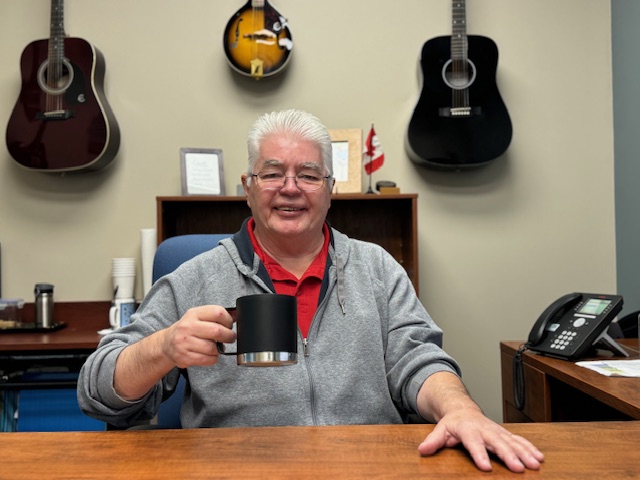Celestion Interview with Brian Weafer

Canada’s Yorkville Sound has come a long way since its beginnings in the back room of the original Long & McQuade music store in downtown Toronto where, in 1963, co-founder Peter Traynor built the now-iconic Traynor DynaBass bass amplifier as a rugged, reliable alternative to the models of the day. Today, Yorkville Sound designs and manufactures a full line of professional PA systems and loudspeakers, instrument amplifiers, installed audio systems, studio tools, microphones, and accessories under its Apex, Traynor, and Applied Research and Technology (ART) brands, with 220 employees at its 150,000-square-foot facility in Pickering, Ontario.
A leader in instrument amplification and a pioneer in loudspeaker horn and cabinet innovation, Yorkville Sound also distributes dozens of iconic pro audio and MI brands including Gibson, Epiphone, Ernie Ball, Universal Audio, Manley for Canada, and HK Audio and Hughes & Kettner for North America. In a remarkable career spanning 36 years, Yorkville Sound VP Brian Weafer has played a key role in propelling the company forward. We sat down with Weafer to gain his insights into music, Yorkville’s trajectory, and the ever-evolving industry landscape.
Weafer became interested in music and electronics at an early age - leading to an encounter that would eventually come full circle. “I played trumpet, French horn, guitar, lots of different instruments. I built my first guitar amp when I was 13 with my dad because we couldn’t afford to buy one. And you know where my dad got the schematic for the amp? From Pete Traynor, the guy who started Yorkville with Jack Long.”
Weafer’s deep experience as a musician and tech tinkerer made him a perfect fit at the company, and he quickly advanced. “Within a very short time of getting the job, they asked me to go into purchasing,” he says. “And then a short time after that, they asked me to be the warehouse manager, then the purchasing manager. Then I was a vice president of this and that. It didn't take me very long to move up.”
At Yorkville, innovating solutions starts with understanding the unique needs of working musicians and engineers—a perspective that’s personal for Weafer, who spent ten years as a touring artist. “In the music business, for equipment to tour and be used in these harsh environments, you have to build it almost from the ground up yourself in order to maintain the quality at every level that can withstand the rigors of the road,” he explains. “Because everybody will tell you that it’s okay for somebody’s stereo to have a particular circuit board, but that would not last in a guitar amp, because it’ll just vibrate to death; or in a PA cabinet, where it will just break apart. So, the company has always been quality minded from day one.”
Weafer says Yorkville’s recipe for success is straightforward: The company is all about sustainable growth, designing and manufacturing solutions onsite, and staying true to vertical integration. “To this day, everything is made in the building. The metal and wood are brought in and made into things. The electronics are all built in the building. The designers are in the building. It’s been that way since day one. There’s such a push to keep it that way, to keep Canadian people at their jobs,” he explains, adding that the company’s tight-knit, family-style culture has led many employees to build careers there.
“Some people have had a career at Yorkville for 45 years,” says Weafer. “Most people today don’t realize that it is possible to have a forever job. You can have a job that pays you every single week for 45 years, and you can get married, raise kids, buy your house, and put your money away, knowing that that’s there for you. It’s like being in the same band for 40 years. Like the Rolling Stones.”
 How to resolve AdBlock issue?
How to resolve AdBlock issue?